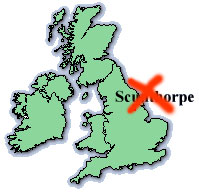 Gordon Brown has announced that a new labelling system for media content is in the works, designed to help parents protect their children from dodgy digital content.
Gordon Brown has announced that a new labelling system for media content is in the works, designed to help parents protect their children from dodgy digital content.
The idea is that a system similar to cinema classifications would be introduced to classify content on websites, video games, TV shows and other media content.
Backed by industry regulator Ofcom, Brown intoned that the system would offer practical help to parents concerned about their little darlings being exposed to new media outlets seemingly stuffed to the brim with violent imagery, drugs and hot, hot sex.
Commenting on the veritable torrent of filth that virtually seeps out of every child’s PC as soon as they connect to the web, Brown said that it is an “issue we must address with practical proposals to address the challenges we face.”
“We want to promote a culture which favours responsibility and establishes boundaries: limits of what is acceptable and unacceptable.”
“We can’t and shouldn’t seek to turn the clock back on technology and change. Rather we need to harness new technology and use it to enable parents to exercise the control they want over the new influences on their children,” he added.
 As part of the scheme, Ofcom will introduce common labelling standards covering cinema, TV, radio, computer games and the internet.
As part of the scheme, Ofcom will introduce common labelling standards covering cinema, TV, radio, computer games and the internet.
These will be backed up by an awareness campaign advising parents about content filtering software for PCs, and information about TV set top boxes which can limit what can and cannot be seen by little Timmy and Tabatha.
Brown added that they’ll also be looking at persuading technology manufacturers to provide better information on software to block content unsuitable for children, as well as investigating new methods to restrict access to saucy and violent content shared over the t’web.
Brown recognised that it’s a fat look of good trying to implement restrictions on just a national scale, pointing out that agreements need to be struck at the international level.
“We need to support all those broadcasters and providers doing a huge amount and of course we need to recognise there are global markets where we need international agreement,” he said, somewhat understating the importance of worldwide standards.
Of course, many companies and public institutions already use web filtering software but their methods can often resemble a 300 ton sledgehammer cracking a dwarf-sized peanut.
Scunthorpe. Arsenal. And Sex
The denizens of Scunthorpe and fans of Arsenal football club have already famously fallen foul of none-too-smart naughty word blockers, and many sites have complained about being blocked for the most spurious of reasons, with very little chance of retribution.
Some sites about UK counties have also found themselves banned from libraries and internet cafes because the word ‘sex’ has appeared in their domain name – even though the sites are about subjects as unerotic as Sussex, Essex and Wessex.
More about word filtering mistakes here: The Scunthorpe Problem
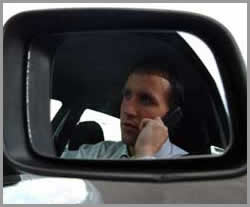 As of today, drivers using their mobile phone while driving in the UK will be hit with increased fines.
As of today, drivers using their mobile phone while driving in the UK will be hit with increased fines.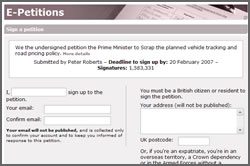 Over the last few weeks there’s been a lot of attention drawn to the huge number of votes cast by the British public in an online petition calling for the “Prime Minister to scrap the planned vehicle tracking and road pricing policy.”
Over the last few weeks there’s been a lot of attention drawn to the huge number of votes cast by the British public in an online petition calling for the “Prime Minister to scrap the planned vehicle tracking and road pricing policy.”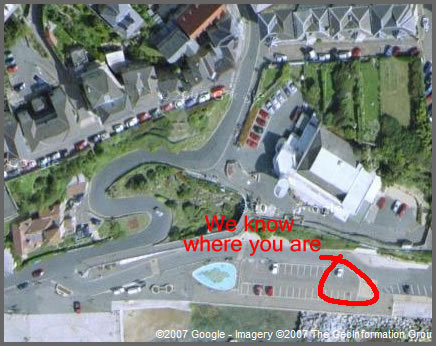
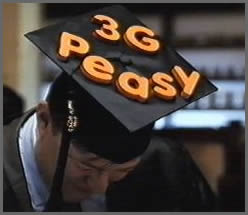 Currently Vodafone have a bigger network than Orange, so Orange would gain more than Vodafone from the deal, but in future it means that new cell sites will be used by both operators.
Currently Vodafone have a bigger network than Orange, so Orange would gain more than Vodafone from the deal, but in future it means that new cell sites will be used by both operators. Why the rush to build?
Why the rush to build? Though city centres might have a demand for 3G (for data services, no one cares about 3G voice – a voice call sounds the same whether it’s 3G or GSM), as you leave dense urban areas the appeal of 3G is less. Well maybe not less, but there are less people to use it and less of a reason for the networks to install 3G infrastructure and sites.
Though city centres might have a demand for 3G (for data services, no one cares about 3G voice – a voice call sounds the same whether it’s 3G or GSM), as you leave dense urban areas the appeal of 3G is less. Well maybe not less, but there are less people to use it and less of a reason for the networks to install 3G infrastructure and sites.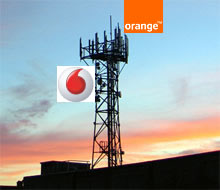 It’s all about their RANs – Radio Access Networks, which connect customers mobiles to the operators networks.
It’s all about their RANs – Radio Access Networks, which connect customers mobiles to the operators networks. Firm believers in technology being used to add something, not being used for the sake of it, we also think there are some areas that technology should stay out of.
Firm believers in technology being used to add something, not being used for the sake of it, we also think there are some areas that technology should stay out of. There are just too many risks to let this go ahead.
There are just too many risks to let this go ahead. There’s a fair chunk of spectrum that’s sitting there not being used in the 2GHz band. The various bits are 2500-2690 MHz, 2010-2025 MHz and 2290-2300 MHz.
There’s a fair chunk of spectrum that’s sitting there not being used in the 2GHz band. The various bits are 2500-2690 MHz, 2010-2025 MHz and 2290-2300 MHz.
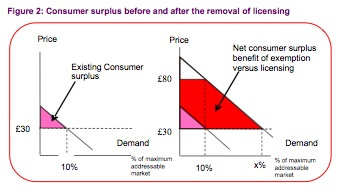
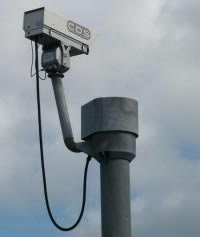 Britain’s Information Commissioner has published a study concluding that, within 10 years, surveillance of people living in the UK will be all-pervasive.
Britain’s Information Commissioner has published a study concluding that, within 10 years, surveillance of people living in the UK will be all-pervasive.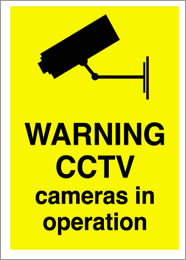 He added: “As ever-more information is collected, shared and used, it intrudes into our private space and leads to decisions which directly influence people’s lives.
He added: “As ever-more information is collected, shared and used, it intrudes into our private space and leads to decisions which directly influence people’s lives.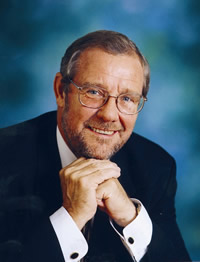 UK sports minister, Richard Caborn, has said that Britain would not protect online gaming executives from extradition requests if they took Internet bets from countries in which they were illegal. These won’t be welcome words to the people running the gambling companies, who have already taken a hit with the arrest of two execs in the US earlier this year.
UK sports minister, Richard Caborn, has said that Britain would not protect online gaming executives from extradition requests if they took Internet bets from countries in which they were illegal. These won’t be welcome words to the people running the gambling companies, who have already taken a hit with the arrest of two execs in the US earlier this year.